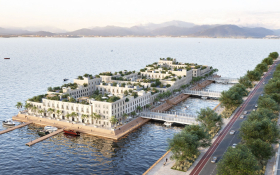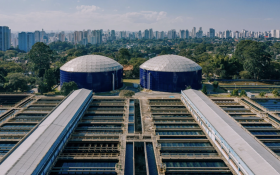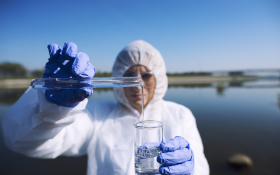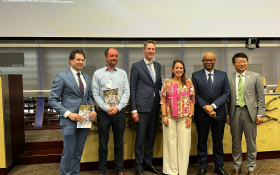Stockholm World Water Week 2016: Watershed partnership pursues to hold governments more accountable for sustainable WASH services
At the Stockholm World Water Week four Dutch development organisations, Simavi, IRC, Akvo and Wetlands International, launched a strategic partnership with the Dutch ministry of foreign affairs for the Watershed programme.
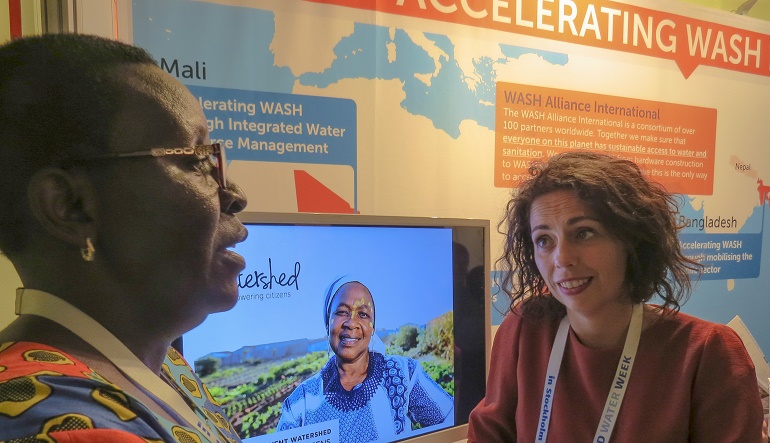
The Watershed programme focuses on building knowhow and skills in Kenya, Uganda, Mali, Ghana, Bangladesh and India for civil society to lobby government on WASH and water resource management. The ultimate goal is that the local community will hold the government in their countries accountable for the supply of clean water, decent toilets and hygiene services.
An important additional aspect is the integration of water resource management. So new WASH services shall not led to depletion of pollution of the water source, neither should it lead to water shortage or detoriation of the downstream catchment.
In the six countries teams have been formed, involving over 100 people. The programme will last five years.
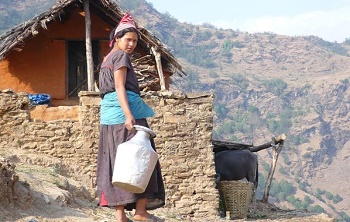 Move the needle
Move the needle
"We need to move the needle faster”, said director Catarina Fonseca (right on top photo). “We are not doing enough to reach universal access to clean water and decent sanitation by 2030. We should hold governments responsible for this slow progress.”
In a way Fonseca finds it remarkable that the programme is necessary. “If the metro fails or roads are blocked, there are complains and stories in the media. But this is not the case when water services are not delivered in developing countries. Nobody complains.”
Holding politicians accountable
Fonseca feels it is time for change and pursue more transparency. “As part of the Watershed programme, we have put teams in place in each country to learn civil society influence politicians. We want to create an environment for politicians to hold their governments accountable for the plans and budgets for water services”.
One of the aims of the programme is to strengthen civil society and help them to start dialogues with their politicians, government and authorities and talk about inequity and poor financing.
The programme is not about blaming and shaming, she adds. “This could have an adverse effect as the specialists in the field might get the blame. It is our objective to help them by holding the politicians accountable.”
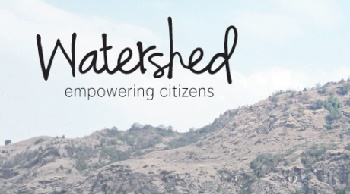 Sustainable water services
Sustainable water services
By building the capacity of civil society, the Watershed programme is to ensure that water providers, governments and private sector take the responsibility to ensure sustainable WASH services as well as sustainable management of the water resources on which they draw.
The Watershed programme, through its local partners, will invest in strengthening the capacity of CSOs to engage and participate in dialogue and dissent about governance and policy.
To this end, a suite of tools and approaches will be assessed, developed and implemented for building CSO capacity for evidence-based lobbying and advocacy.
Read also on this website
- Stockholm World Water Week 2016: Akvo celebrates ten-years online monitoring water aid projects, 31 August 2016
- Stockholm World Water Week 2016: Implementation of SDG6 on water gets into gear, 30 August 2016
- Stockholm World Water Week: Dutch delegation to launch programme on sustainable water use, 25 August 2016
More information
Stockholm World Water Week
www.worldwaterweek.org
Watershed
verhoeven@ircwash.org
www.watershed.nl
